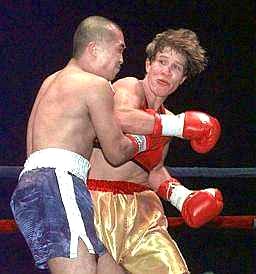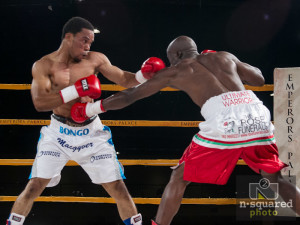 (Despite this column being written two days before the Boks were belted by Argentina, the sentiment remains – any suggestion of jettisoning Meyer is daft. With no obvious replacement in the wings, he should be going nowhere).
(Despite this column being written two days before the Boks were belted by Argentina, the sentiment remains – any suggestion of jettisoning Meyer is daft. With no obvious replacement in the wings, he should be going nowhere).
Heyneke Meyer may have his detractors, but the one thing he has added is stability to the Springbok cause. It’s not something you could say of his three predecessors: Peter de Villiers, Jake White and Rudolf Straeuli.
All three endured rows and ructions – and sometimes caused them – but mercifully Meyer’s tenure has largely been free of such issues. He’s been able to concentrate on the rugby.
Statistically, Meyer now ranks in the top third of the 10 Bok coaches who have held the position since readmission in 1992. Kitch Christie, with his 100 percent return, including the 1995 World Cup, stands atop the list, followed by Nick Mallett (71 percent) and White and Meyer (both 67 percent).
Meyer hasn’t worked out the magic formula to dominating the All Blacks – De Villiers won more often than not against them – but two wins in every three Test matches against all-comers is a solid ratio. It means he isn’t nearly under the sort of pressure that was exerted on the like of Ian McIntosh (33 percent), Carel du Plessis (37 percent) or Rudolf Straeuli (52 percent).
Not unexpectedly, word on rugby’s verdant grapevine is that Meyer has been offered a two-year-extension on his four-year contract. He started in 2012 and his natural term of office would have ended after this World Cup.
There’s nothing wrong with this habit, particularly as coaching cycles often run this way. Coaches often get bored and complacent. Bringing in fresh energy and ideas is no bad thing.
But this doesn’t necessarily apply in Meyer’s case. Although the Boks could implode at the World Cup, you suspect they won’t. Apart from 2003, when there were other factors at play, not least the Staaldraad shemozzle, the Boks have always been well in the mix. World Cup rugby suits them.
Meyer’s broad plan seems to be shifting into place and his enthusiasm for the job is undimmed. He’s still juggling the mercury in balancing experience with form, but he’s moving the right way. He’s also making solid strides towards tacking onto the Bok game. He has them playing with more ambition and belief, something the players have often struggled with.
Meyer will be glad to secure another two years because his tenure would have flown by and he will feel the job is unfinished, whether they win the World Cup or not.
The other reality is that no-one else is banging down the door to do the job. Until recently there were always top names in the mix, but many have faded away.
Mallett isn’t interested, Brendan Venter is too busy, Allister Coetzee is packing for Japan and John Mitchell, an uitlander, has no hope.
There are probably only three realistic candidates who line up, none of them convincing. Johan Ackerman of the Lions is a coach on the rise. He’s done great work with a team of bricklayers and plumbers (almost) and you wonder how he might go with real gold in his hands.
Still, he hasn’t won anything of substance. The jury is still out on him.
Dawie Theron is in SA Rugby’s coaching structures – he looks after the under-20s – and has enjoyed some success. But the step-up to the big leagues is something altogether different. He would need to make an impact here to stake a real claim.
Little-known Johan van Graan is another. He is one of the quiet tinkerers in Meyer’s staff. The one measure of his excellent abilities is what the players think of him. To a man, they believe he is outstanding.
His one failing is that he, too, hasn’t held down a frontline job, although he was recently courted by both the Bulls and the Stormers. He has a familial connection at the Bulls (his dad is chief executive), so sensibly opted out of that move.
He couldn’t come to financial terms with the Stormers, so stayed put with the Boks where he continues to grow and learn.
Although the man in the street will largely judge Meyer on how the Boks shape at the World Cup, it will be no bad thing if he keeps his office at SA Rugby’s HQ in Plattekloof.
For now, there is no-one better. – © Sunday Tribune












